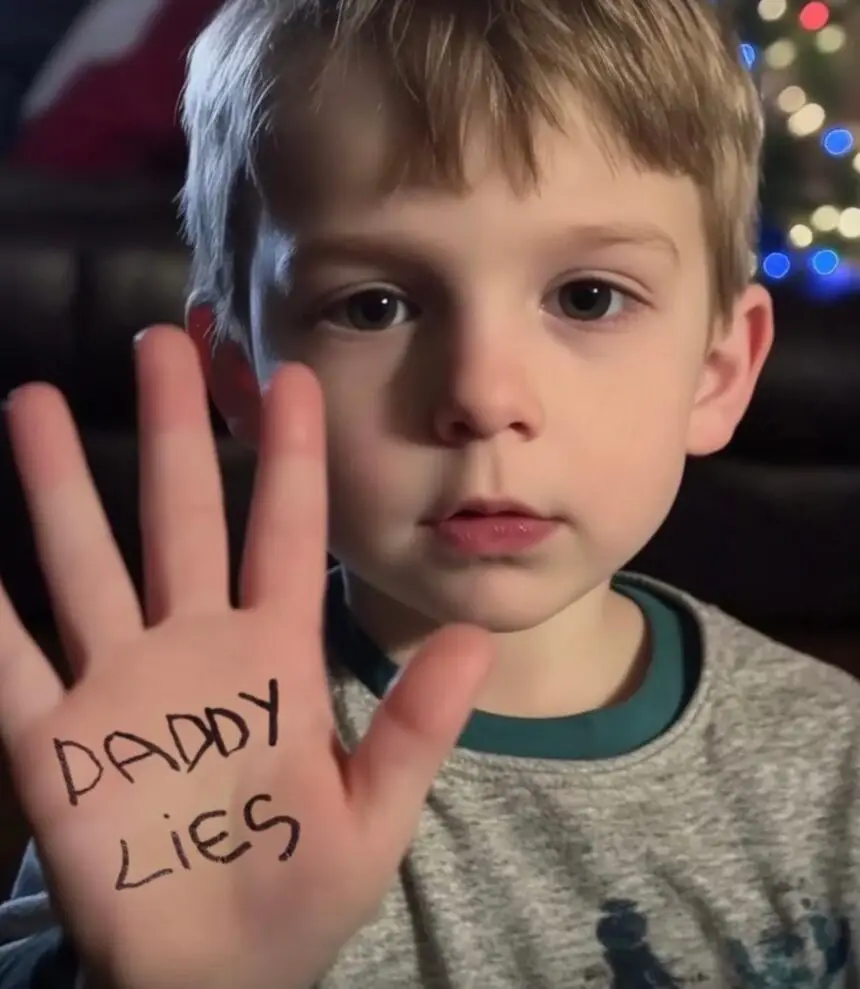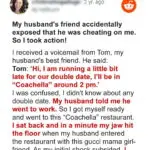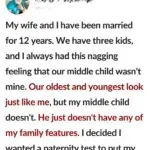My husband’s early returns from work — always when our nanny was still there — set off alarm bells.
But it was our nonverbal six-year-old, Oliver, who saw the truth. His warning, “Dad lies!” written on his palm in marker, led me to uncover a secret that would shatter our world.
Oliver had always been more observant than most kids his age.
Maybe it was because he couldn’t speak and his rare condition meant he had to find other ways to communicate.
Whatever the reason, he saw things the rest of us missed, like how his father had been acting strange lately.
I’d noticed the changes gradually, like watching shadows lengthen across our living room floor.
First, it was the phone calls he’d take outside, pacing the garden with one hand pressed against his ear.
Then came the mysterious appointments that never quite lined up with his usual schedule. But what really set off alarm bells was when James started coming home early from work.
It should have been a good thing.
More family time, right? But something felt off about it, especially since he always seemed to time his arrivals when Tessa, our nanny, was still there.
They’d be in deep conversation when I’d call to check in, their voices dropping to whispers when Oliver was around.
“He’s just being more involved,” my friend Sarah assured me over coffee one morning. “Isn’t that what you’ve always wanted?”
I stirred my latte, watching the foam swirl into abstract patterns.
“It feels different. Like he’s… hiding something.”
“What makes you think that?”
“He’s distracted. Distant.
The other day, I found him sitting in Oliver’s room at midnight, just watching him sleep. When I asked what was wrong, he said ‘nothing’ so quickly it had to be something.”
I’d managed to keep my darker suspicions at bay until one fateful Tuesday afternoon. I left work early after my last meeting was canceled.
The house was quiet when I walked in, but I heard low voices coming from the living room.
James and Tessa sat on the sofa, heads close together, speaking in hushed tones. They jumped apart when they saw me like teenagers caught passing notes in class.
“Rachel!” James’s voice cracked slightly. “You’re home early.”
“Meeting got canceled,” I said, the words falling flat between us.
“Funny, sounds like yours did too.”
The story doesn’t end here –
it continues on the next page.
TAP → NEXT PAGE → 👇







